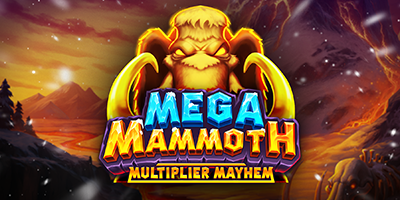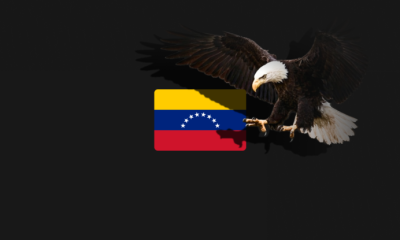Asia
How Esports is a real sport, and must not be clubbed with iGaming, Fantasy, or other gaming categories
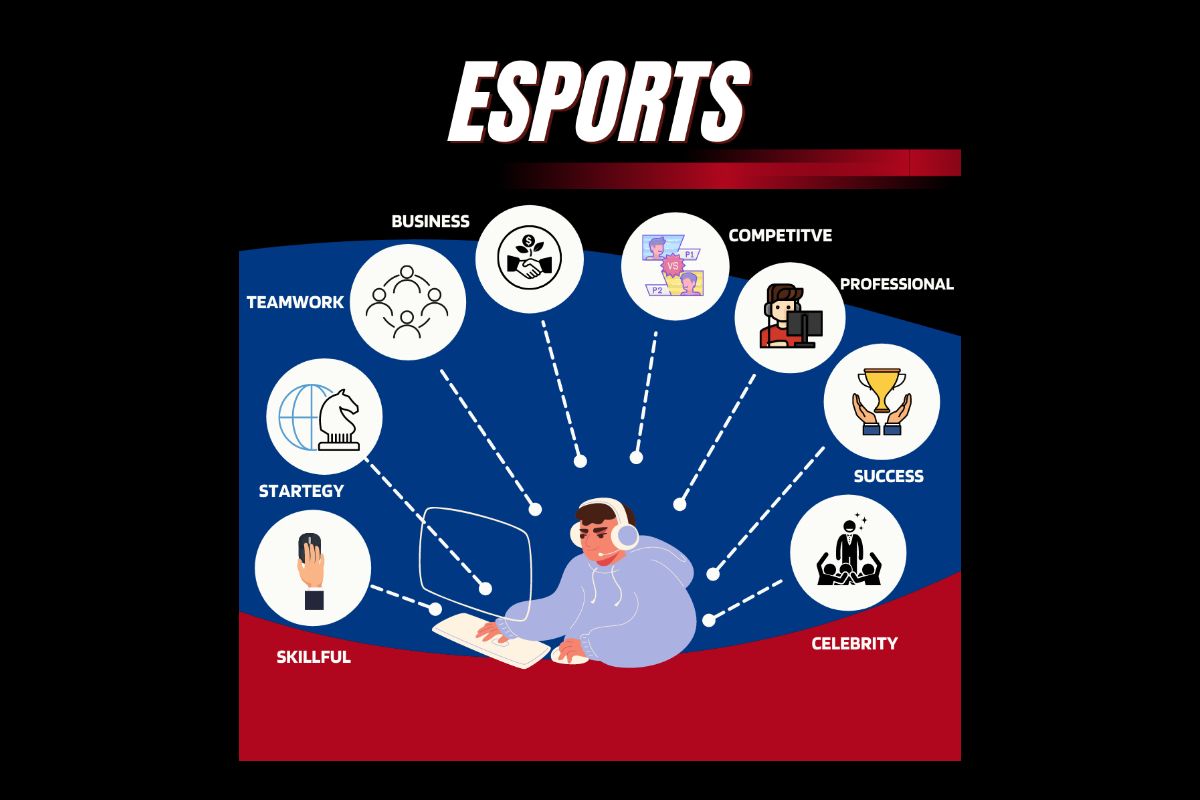
The tremendous rise of competitive gaming is the greatest phenomenon of the 21st century. Once emerged as a hobby for many, competitive gaming gradually turned into a very professional and disciplined system.
Pandemic 2020 proved a significant year for Esports both in terms of increased engagement and its growing acceptance. With more time in hand being indoors, gaming became a viable option for entertainment. This amazing growth introduced competitive gaming to an entirely new breed of highly engaged audiences. Player participation in competitive gaming along with viewership for Esports events saw a significant spike.
As per statistics, Indian Esports accounted for around 4% of all online gaming users and 9.13% of aggregate revenue in FY20. In 2020, Esports viewership increased to 17 million and is projected to reach 85 million by 2025. India’s esports industry is set to quadruple in size to Rs 1,100 crore by 2025 from Rs 250 crore at present—clocking a compounded annual growth rate of 46%, according to an EY report.
Tarun Gupta, Founder, Ultimate Battle, which is India’s first-ever one-stop online esports platform, explained why Esports should not be clubbed in with iGaming, Fantasy, or other gaming categories.
Online Games are primarily divided into the following categories based on how the game is designed, the way the games are played, and the amount of skill required to play these games:
1. Card-based Games (ex. Poker, Rummy)
2. Casual Games (ex. Pool, Bubble shooting)
3. Fantasy Games (ex. Fantasy Cricket, Fantasy Football)
4. Esports (ex. DOTA 2, BGMI, VALORANT)
In India, people confuse esports with fantasy, rummy, or other casual games. There is no reason to associate these games with Esports. Esports is the organized form of video game competitions online and/or offline including video game genres of traditional sports, multiplayer online battle arena (MOBA), real-time strategy (RTS), and fighting & first-person shooter (FPS) games.
Esports games are designed with high indulging competitive experience in mind. The games have various elements to them which not only make them sporting in nature but also open opportunities for gamers to learn about the game, grow and become the best at it and compete at a professional level.
Esports is a Real Sport, Here is Why:
When you think of sports, count the things that quickly come into your mind? It surely would be fierce competition, physical activity, fans, practice, and adrenaline rush, etc. Moreover, we think of an Esports player sitting at a desk and staring at a screen all the time. Though Esports may not involve the same level of physical activities as compared to sports like football, athletes do need enough physical stamina, motor skills, and reflex to control gaming devices and compete well with the gameplay.
The amount of effort, practice, and discipline required by professional esports athletes is comparable to many popular sports. Despite all the statistics and data showing the steep growth in Esports over the past few years, there is still a debate going on- “Whether Esports can be categorized as real sports or if it’s a sport at all.”
Global sporting authorities have now started recognizing Esports as a sport. Recently the Olympic Council of Asia (OCA) announced that eight games including FIFA, PUBG, and Dota 2 will be a part of the Asian Games 2022. To recall, Esports was a demonstration event at the 2018 Asian Games held in Jakarta.
Let’s look into the similarities to traditional sports and find out why these similarities match up and make Esports a real sport all the way.
1. Game Mechanics
Game mechanics are the rules and set of methods that guide the gamer’s actions and interactions between the player and the game. The depth and dynamics of in-game mechanics for Esports game titles are just as vibrant as sports in their gameplay and strategic movements. Combining this with the depth of the game’s mechanics which keeps evolving makes Esports a top-notch sporting match. Esports players have to master the game’s mechanics and concentrate on learning and improving game-specific skills. These game mechanics help to make gaming an engaging and fun-filled experience.
2. Learning Curve of the Game
Like traditional sports, Esports has a steep learning curve that helps gamers become more proficient with the game and gain a deeper understanding of the game. The curve elevates further as the player progresses through the game. As difficulty levels add up further, gamers have to play with more refined gameplay strategies to fight and win. To succeed in Esports, you’ll have to be the best in terms of game skills along with team coordination, opponent research, critical thinking, and multi-tasking.
3. Physical prowess and Strategic Thinking
Dive deeper into Esports games and you will find both forms of sports have a lot in common. Throughout the game, Esport athletes are required to sustain high levels of attention to make important decisions under time pressure. This is also true in the case of athletes in Esports. Traditional sports require mostly athletic abilities and then strategies to make scores. Esports, on the other hand, requires players to have flash reflexes, an understanding of deep in-game mechanics as well as coping with changing dynamics of in-game strategies to be implemented during gameplay. Only the players with superb athletic ability and strategic understanding of games can coordinate to strike at the right time.
An esports gamer practices and hones their skills for hours in order to perfect their movements on the keyboard and mouse while simultaneously coordinating with teammates. The Esports athletes achieve up to 400 movements on the keyboard and the mouse per minute, four times as much as the average person. The whole thing is asymmetrical because both hands are being moved at the same time and various parts of the brain are also being used at the same time.
4. Practice and Training is essential
In terms of practice and training, Professional esports and traditional sports athletes share several common characteristics. Like traditional athletes, Esports professionals exhibit a commitment to excellence, perseverance, and a passion for their sport. Moreover, they both go through physical and mental training to fine-tune their athletic and gameplay abilities.
Esports athletes work hard to physically and mentally prepare themselves and practice for each competition that they are competing in.
Conclusion:
It requires rigorous training and efforts to become a professional Esports professional. Like other traditional sports, Esports athletes need to have qualities like concentration, precision, and execution that only come after the solid in-game experience. The government needs to take this into cognizance and bring Esports under the umbrella of policies and legislations of Sports.
Powered by WPeMatico
Akshat Rathee
Indian Esports 2026: Strategic Growth and the Asian Games Milestone
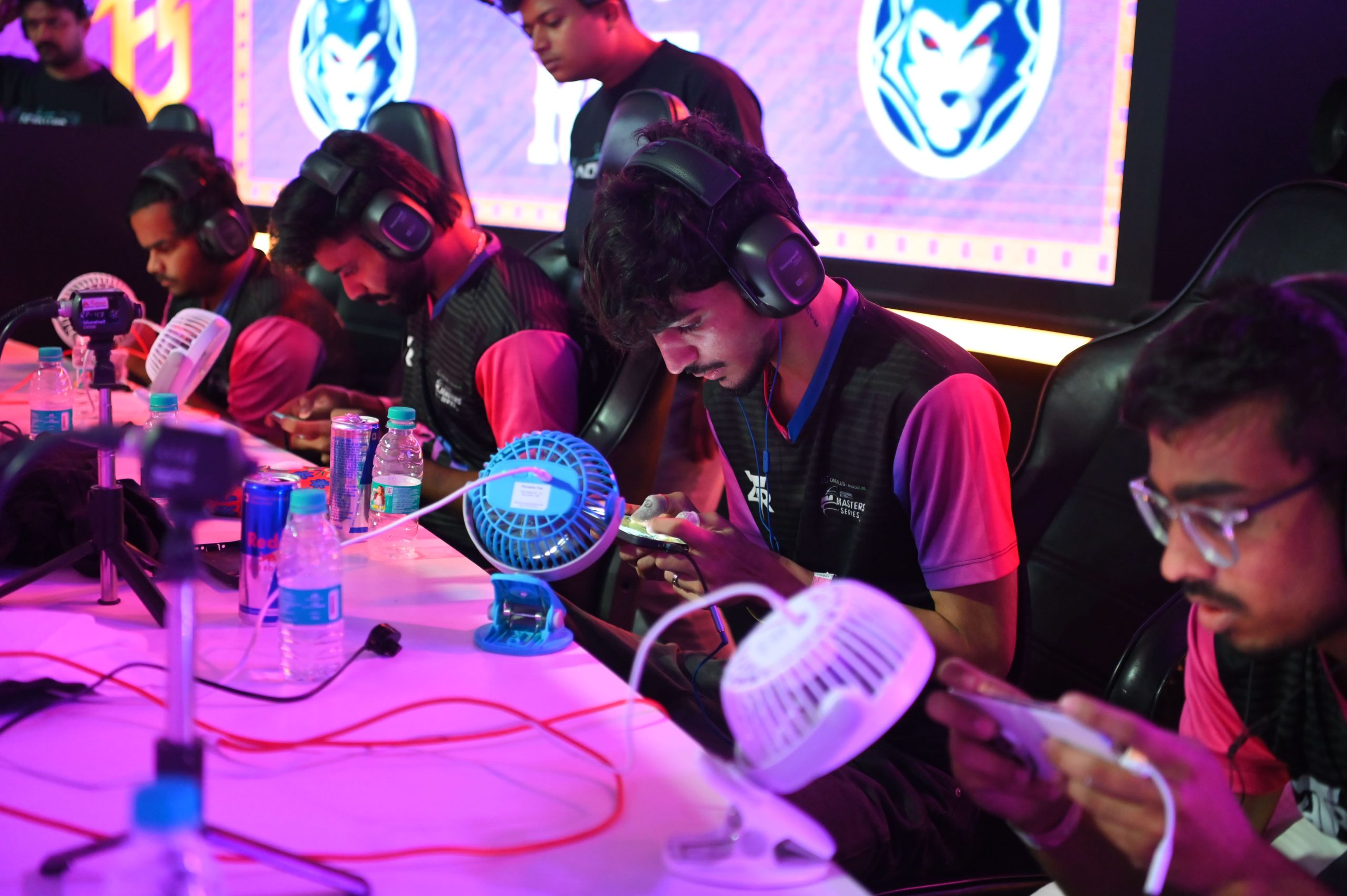
The Indian esports landscape is transitioning from a period of rapid “spectacle” growth to a phase defined by lasting institutional structure. Following the implementation of the Promotion and Regulation of Online Gaming Act (PROGA), 2026 is set to be the year where regulatory clarity, international competition, and domestic grassroots development converge.
The Impact of PROGA: Policy into Practice
The Promotion and Regulation of Online Gaming Act (PROGA), signed into law in August 2025, has officially moved from policy to practice. Its primary contribution to 2026 is the explicit separation of esports from money-based gaming.
-
Legitimacy: By categorizing esports as a legitimate competitive pursuit, PROGA has unlocked state-level adoption and cleared the way for schools and colleges to integrate gaming into their sports frameworks.
-
Commercial Confidence: With a clear regulatory environment, brands in sectors like FMCG, automotive, and BFSI are now viewing esports as a stable, long-term youth engagement platform rather than a risky experiment.
-
Athlete Pathways: PROGA facilitates the creation of standardized national registries for athletes, ensuring that competitive integrity is maintained across grassroots and professional tiers.
The Asian Games 2026: A Global Stage
The Asian Games 2026 in Aichi and Nagoya, Japan, serves as the most critical milestone for the ecosystem this year.
-
Medal Status: Esports will feature as a full medal event with 11 confirmed titles, including League of Legends, PUBG Mobile (Asian Games Version), and Pokémon UNITE.
-
Indian Prospects: India’s best historical result (quarter-finals in League of Legends at Hangzhou) has set a high bar. For 2026, the focus has shifted toward high-performance training camps and long-term athlete mentorship to secure a podium finish.
-
Multi-Sport Integration: Participation alongside traditional athletes reinforces the narrative that esports is a viable professional career, further encouraging government investment through schemes like Khelo India.
Market Evolution and Key Trends
The Indian gaming market is projected to reach approximately $5.02 billion in 2026, driven by a massive player base exceeding 500 million gamers.
| Trend | Impact in 2026 |
| Mobile Dominance | Over 95% of the market remains mobile-first, fueled by 5G expansion and affordable hardware. |
| Beyond BGMI | 2026 is seeing a push to diversify the market into fighting games, sports simulations, and PC titles to avoid “one-title dependency.” |
| Monetization Shift | Revenue is shifting from pure advertising toward battle passes, subscription models, and in-game progression. |
| Tier II & III Growth | Most new user acquisition is coming from smaller cities, demanding more vernacular and localized content. |
The post Indian Esports 2026: Strategic Growth and the Asian Games Milestone appeared first on Eastern European Gaming | Global iGaming & Tech Intelligence Hub.
Asia
Insurgence Gaming Company Introduces La Imperia, a Community-First All-Female VALORANT Tournament
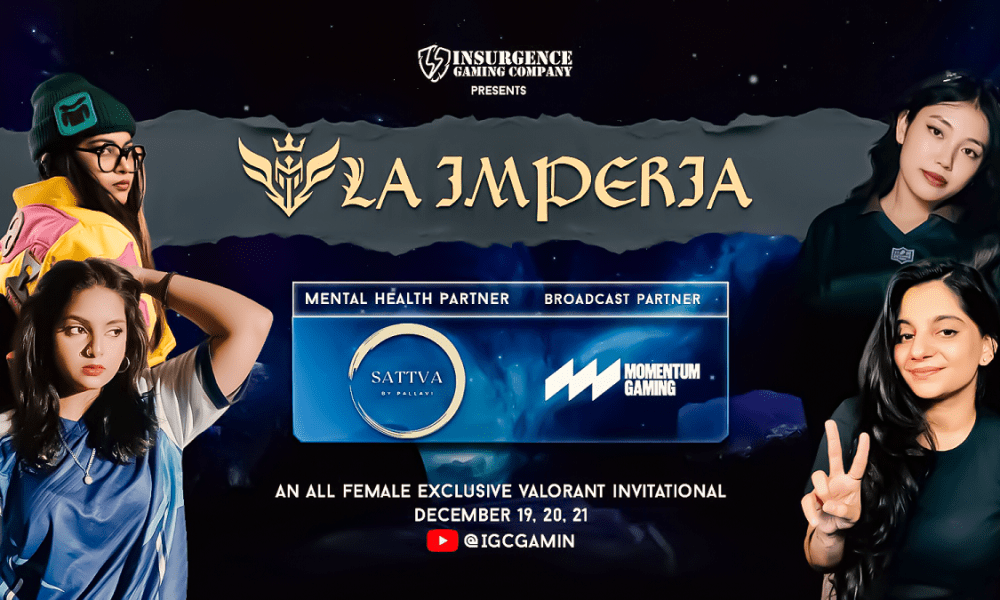
La Imperia, a new all-female esports IP by The Insurgence Gaming Company, will make its competitive debut this month with an online VALORANT invitational tournament running from December 19 to 21, 2025. Designed as a visibility-first platform for women competitors, the event brings together four invited Indian teams for a three-day broadcast competition.
La Imperia marks the inaugural tournament by the Insurgence Gaming Company, a newly founded esports company led by Jasper Shabin, who previously served as a poject manager at Skyesports. Positioning itself as a community-first tournament operator, the Insurgence Gaming Company aims to refocus attention on grassroots competition and long-term ecosystem building at a time when entry-level and women-led esports pathways remain limited.
The tournament will be played in VALORANT and feature a round-robin group stage followed by single-elimination playoffs, culminating in a BO5 Grand Final. All matches across the three days will be broadcast live on YouTube, along with additional watch-parties.
The four invited teams competing at La Imperia include Huntrix, Sin Sisters, Plushie Gang and MyKil. All teams feature all-female rosters, aligning with La Imperia’s positioning as a dedicated women’s esports IP.
Broadcast production for the event will be handled by Momentum Gaming, serving as the official Broadcast Partner. The on-air talent lineup includes Star Tania, Nekroz, Odawg, and Hikari Jane, who will guide viewers through the tournament across all three days.
Beyond competition, La Imperia is also placing emphasis on player well-being. Sattva by Pallavi joins the tournament as the Mental Health Partner, integrating conversations around mental health and holistic wellness into the event’s broadcast and content output. The partnership reflects a growing recognition of sustainability and mental resilience within competitive gaming environments.
Speaking on the launch, Jasper Shabin, Founder of The Insurgence Gaming Company, said: “La Imperia is built to be a visibility platform first. There is no shortage of talent in the women’s VALORANT scene, but there are very few consistent stages where that talent can be seen, supported, and taken seriously. With the Insurgence Gaming Company, we want to return focus to grassroots competition and create formats that players can grow with, not just compete in once.”
The tournament carries an INR 15,000 prize pool, with the primary focus placed on competitive exposure, broadcast quality, and long-term ecosystem value rather than one-off incentives.
With its inaugural edition, La Imperia sets the foundation for a new women-led esports property in India—one that combines structured competition, professional broadcast standards, and a community-first philosophy.
The post Insurgence Gaming Company Introduces La Imperia, a Community-First All-Female VALORANT Tournament appeared first on Gaming and Gambling Industry Newsroom.
Asia
IESF Officially Opens the World Esports Championship 2025 in Kuala Lumpur

Reading Time: < 1 minute
The World Esports Championship 2025 (WEC25) is officially open in Kuala Lumpur, welcoming athletes, fans, and delegations from around the globe. With 19 nations taking part in Mobile Legends: Bang Bang (MLBB), this year’s event stands as the most internationally diverse MLBB competition in IESF history.
After a year filled with national and regional qualifiers and preparations from teams around the world, the world’s top esports athletes have arrived in Malaysia’s capital, Kuala Lumpur. The opening ceremony set the tone for the days ahead, offering fans a first glimpse of the excitement and atmosphere surrounding this year’s championship.
“WEC25 reflects the continued growth of esports as a space for connection, competition, and shared passion,” said IESF General Secretary Boban Totovski. “Bringing together 19 nations for MLBB is a milestone not just for the title, but for the entire esports ecosystem. We are proud to bring this edition of the championship to Kuala Lumpur.”
As the competition officially kicks off, the schedule is fully packed with exciting match-ups among Nations, competing for their flag and country. The best from all over the world will have the unique opportunity to become the MLBB World Champion.
IESF extends its gratitude to the Malaysian government and the Ministry for Youth and Sports, partners, athletes, and global supporters who continue to elevate the championship’s reach and impact.
The post IESF Officially Opens the World Esports Championship 2025 in Kuala Lumpur appeared first on European Gaming Industry News.
-

 16-Reel Slot6 days ago
16-Reel Slot6 days agoMighty Wild™: Gorilla Unleashed – Wazdan Scales New Heights in Jungle Series
-

 Alex Lorimer6 days ago
Alex Lorimer6 days agoMega Mammoth – Multiplier Mayhem Charges into the Gaming Corps Portfolio
-

 Arizona5 days ago
Arizona5 days agoArizona Department of Gaming Reports $44.9 Million in Tribal Gaming Contributions for the Second Quarter of Fiscal Year 2026
-

 Big Hot Flaming Pots6 days ago
Big Hot Flaming Pots6 days agoBig Hot Flaming Pots: Tasty Treasures – Lightning Box Brings Land-Based Hit Online
-

 Argentina Gambling6 days ago
Argentina Gambling6 days agoBETER names Matias Tapia Gomez as LatAm Business Development Manager
-

 Booming Games4 days ago
Booming Games4 days agoBooming Games and Live Play Mobile Launch “LivePlay™ Slots” with Exclusive Modo Debut
-

 Blask Index6 days ago
Blask Index6 days agoHow Venezuela’s iGaming market is reacting to US pressure
-

 Affiliate Management4 days ago
Affiliate Management4 days agoN1 Faces: Daria Maichuk — “Communication as the Key to Strong, Effective Partnerships in Affiliate Marketing”






